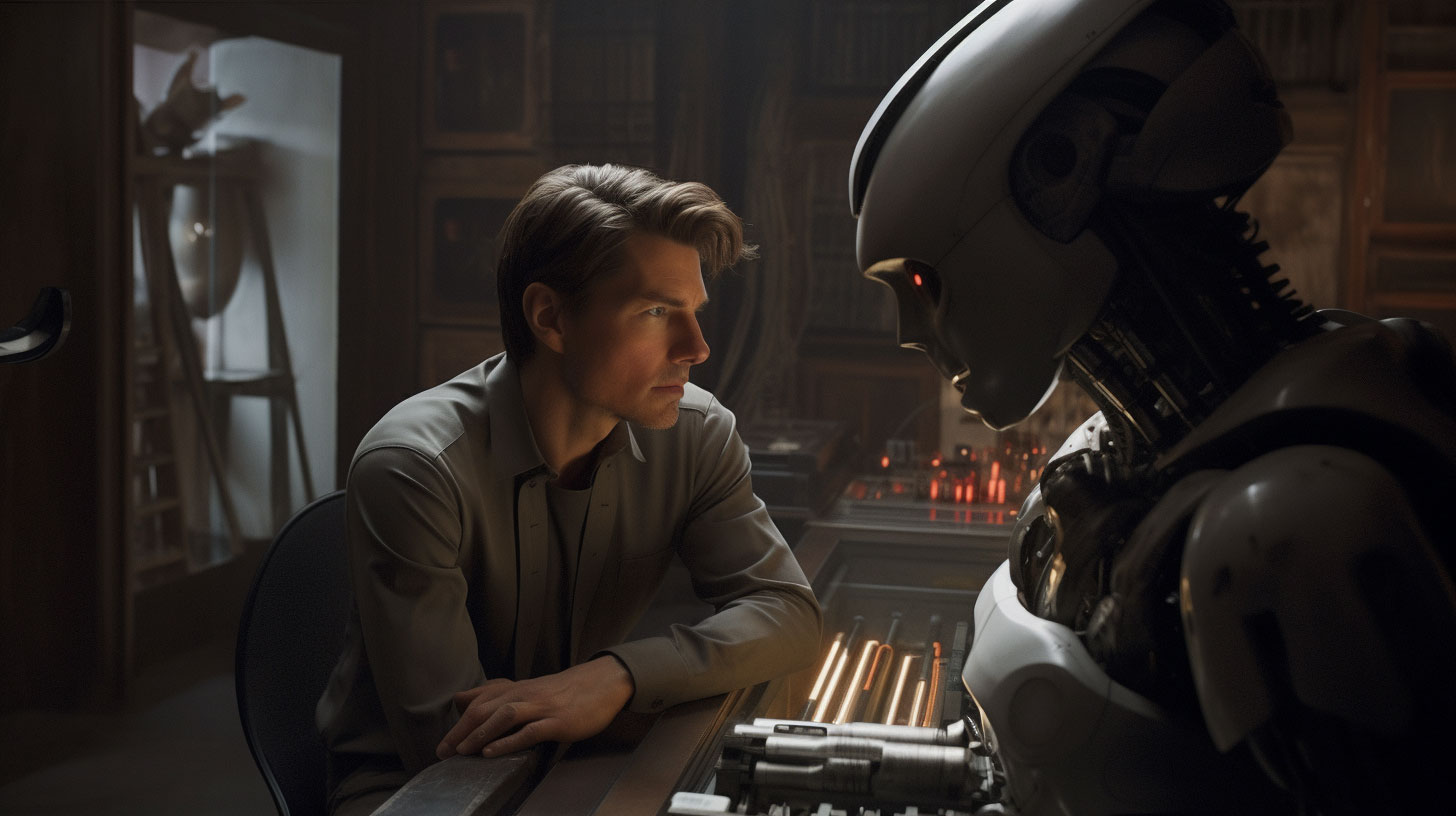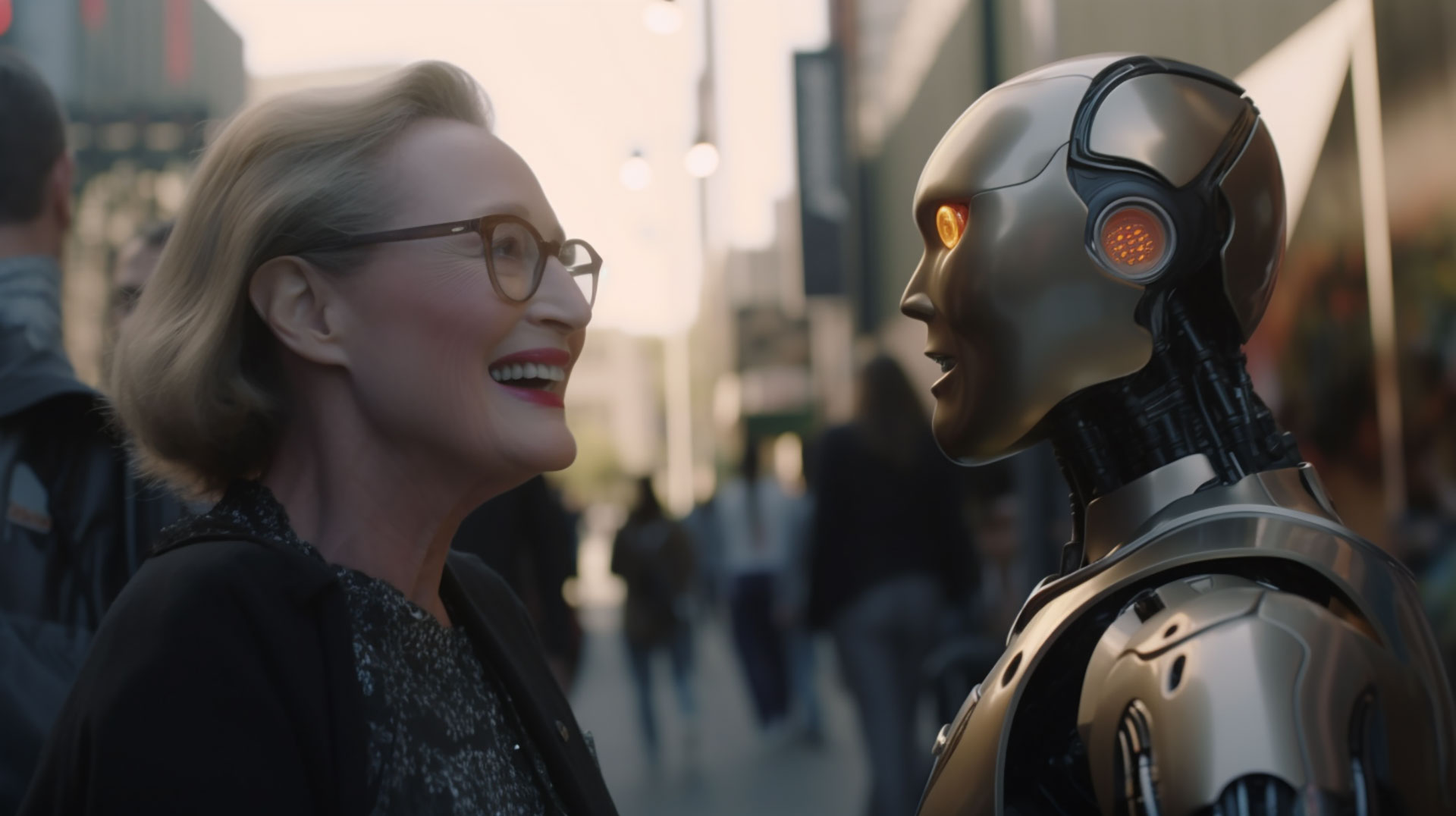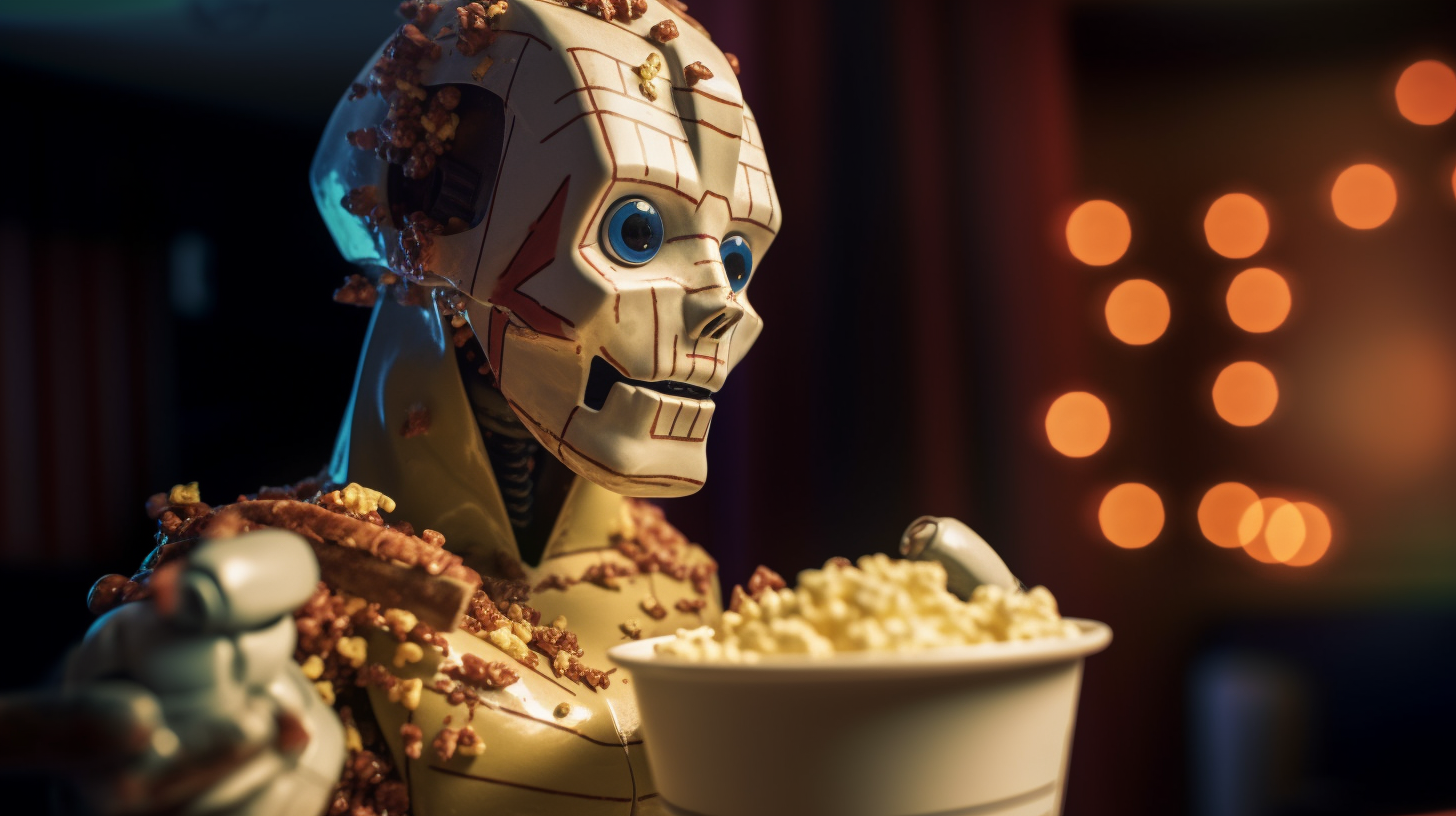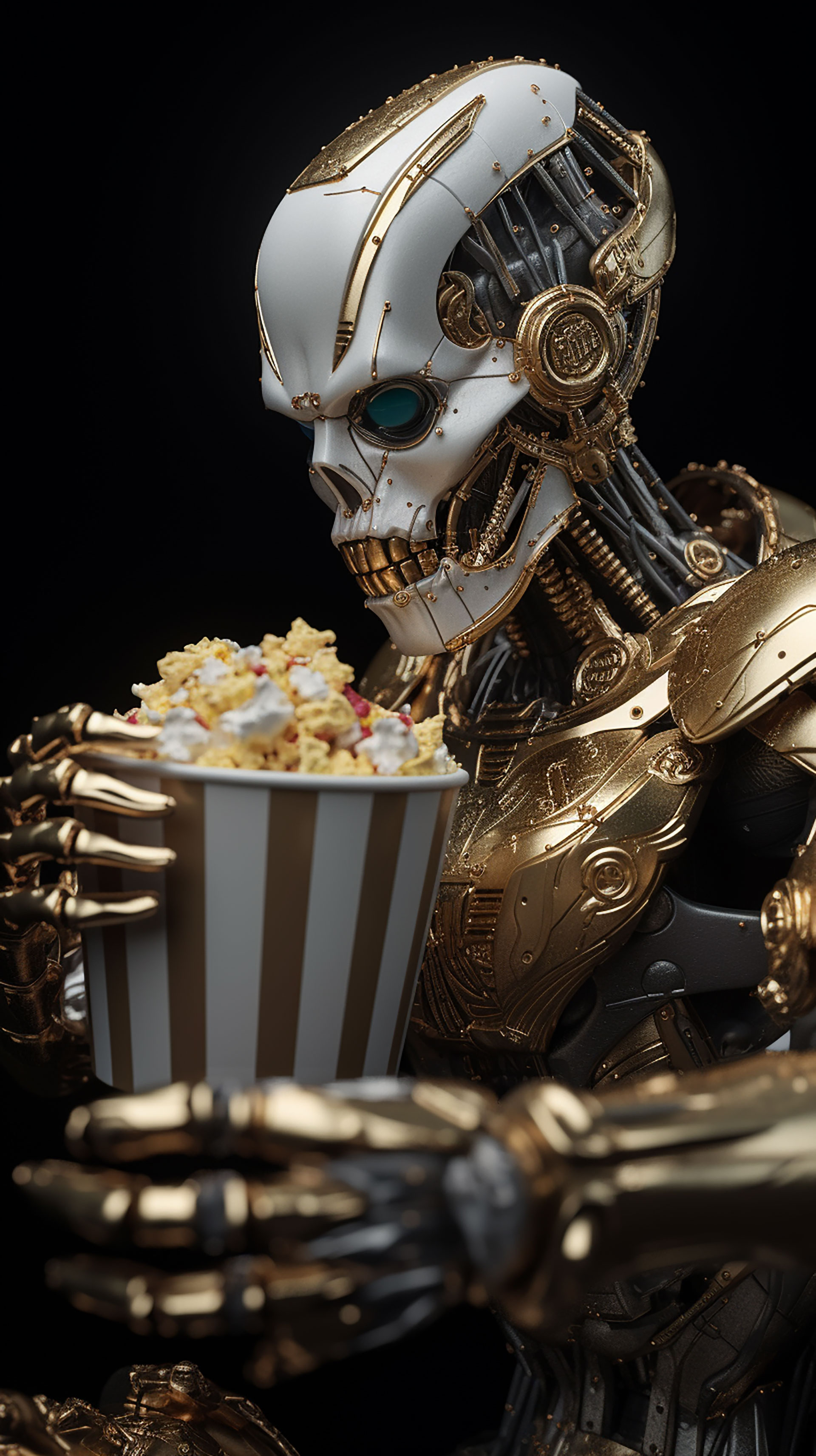The artificial intelligence (AI) is rapidly changing the landscape of the entertainment industry, opening up new opportunities and challenges for creators, producers and consumers. From production and post-production to the viewing experience and scriptwriting, this new tool within everyone’s reach is transforming the way we interact with audiovisual media.
One of the most obvious applications of AI in the entertainment industry is the improvement of the content recommendations on streaming platforms. Through the analysis of our viewing habits and interests, it can offer more precise and personalized recommendations, which improves our experience as viewers.
Thinking of the not too distant future, Netflix may use your viewing data not only to offer you highly personalized recommendations, but also to generate content tailored to your interests instantly, creating storylines, plots and characters that can interact with the user, producing personalized and unique experiences on a large scale. Let’s imagine, for example, that the platform could offer you a short film with your favorite actors, the genre you like the most and even with you as the main character… in short, anything would be possible.
This new technology is beginning to play a role in the production and post production of content where AI tools can automatically analyze the recorded material, select the best moments to include in the final cut and predict continuity errors. This reduces the time required for editing and improves the quality of the final product.

AI will also be influencing the creation of content and scripts, because by analyzing the most successful and popular content on different platforms, content writers and developers can better understand the tastes of their audience and create more engaging content. Plus, you can even adapt scripts for different platforms, customizing the experience for each audience.
In this new era, audiovisual industry professionals they must constantly update their skills and learn to work with technology. Roles like software developers, data engineers, and data scientists are in high demand. These professionals are responsible for designing and developing AI algorithms for various applications in video post-production and editing, as well as scripting and custom content.
Artificial intelligence is not intended to replace content professionals or human creativity (hopefully), nor take on tasks such as how to direct people. Tom Cruise on a film set. Instead, its purpose is to improve the efficiency and quality of the daily work of these professionals. Human creativity remains a crucial element in the entertainment industry.

The renowned filmmaker joe russoKnown for directing blockbuster movies like “Avengers: Infinity War” and “Avengers: Endgame” among others, he is also a member of the board of directors of several artificial intelligence companies. Russo warns that, in the near future, it will be necessary to protect yourself from AIs by using other AIs. According to him, within two years, an artificial intelligence could be able to create a movie on its own, evidencing the rapid advancement in the field and how it will affect the film industry.
The director raises the possibility that the AI will allow design and modify narratives constantly evolving for movies, TV shows and video games. Imagine a future where a streaming platform can generate a personalized movie with avatars of oneself with Marilyn Monroe, for example, adapting to the viewer’s preferences, times and creating dialogues using their voices. In this way, the story would be specifically adapted to the tastes of the user, according to what he declared to Collider.

In the near future, AI-powered voice cloning could change the voice-over industry forever. As technology advances, it is possible that we see movies in Spanish with the “original” voice of actors like Brad Pitt or Julia Roberts, speaking perfectly in Spanish. AI voice cloning involves using deep learning algorithms to analyze and replicate the unique characteristics of a person’s voice, allowing cloned voices to sound nearly identical to the original.
This technological breakthrough could revolutionize dubbing, as actors could lend their voices in different languages without having to learn the language itself. Additionally, this would also allow viewers to enjoy the actors’ performances in their native language, creating a more authentic and emotional cinematic experience. AI voice cloning could also reduce production costs and times by eliminating the need to hire additional voice actors for each language. Although there are still ethical and legal challenges related to voice cloning, its potential to transform the dubbing industry is undeniable.

The social and cultural impact that is taking place is undeniable, because it is making content more accessible, automatically generating video summaries and subtitles, and creating audio and video content without the need for human resources.
The fate of the entertainment industry is inevitably intertwined with the advancement of this new technology. Artificial intelligence, in its unstoppable march, will redefine the sector in all aspects, from production and narrative to the viewer experience and content availability. To meet this future, both professionals and consumers must be willing to adapt, continually improving their skills and expanding their knowledge in this ever-evolving field.

KEEP READING:
